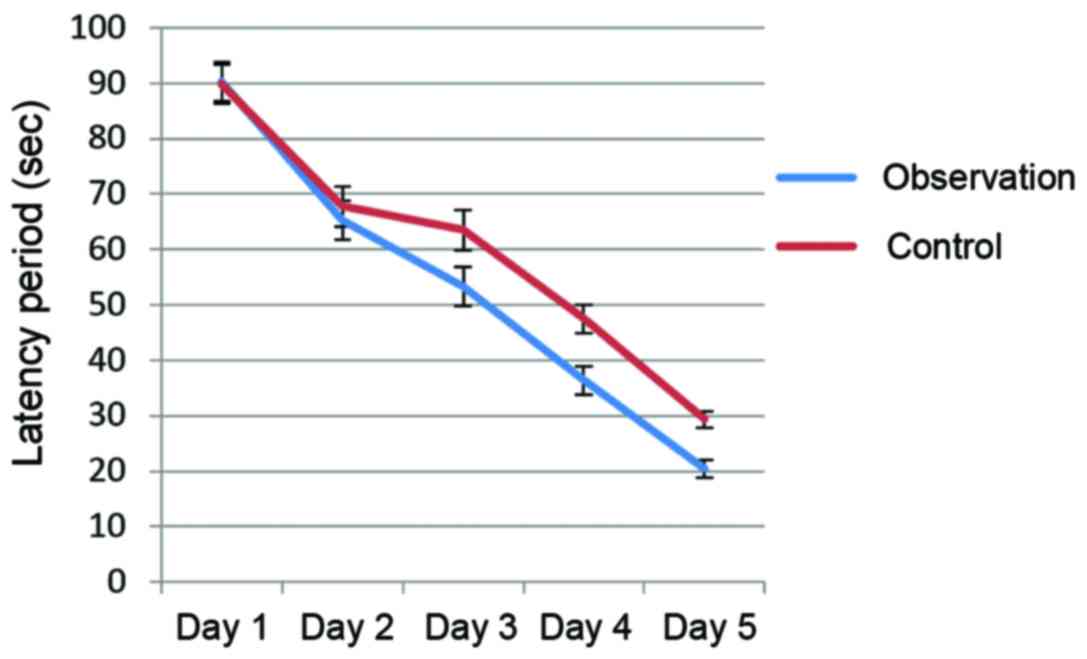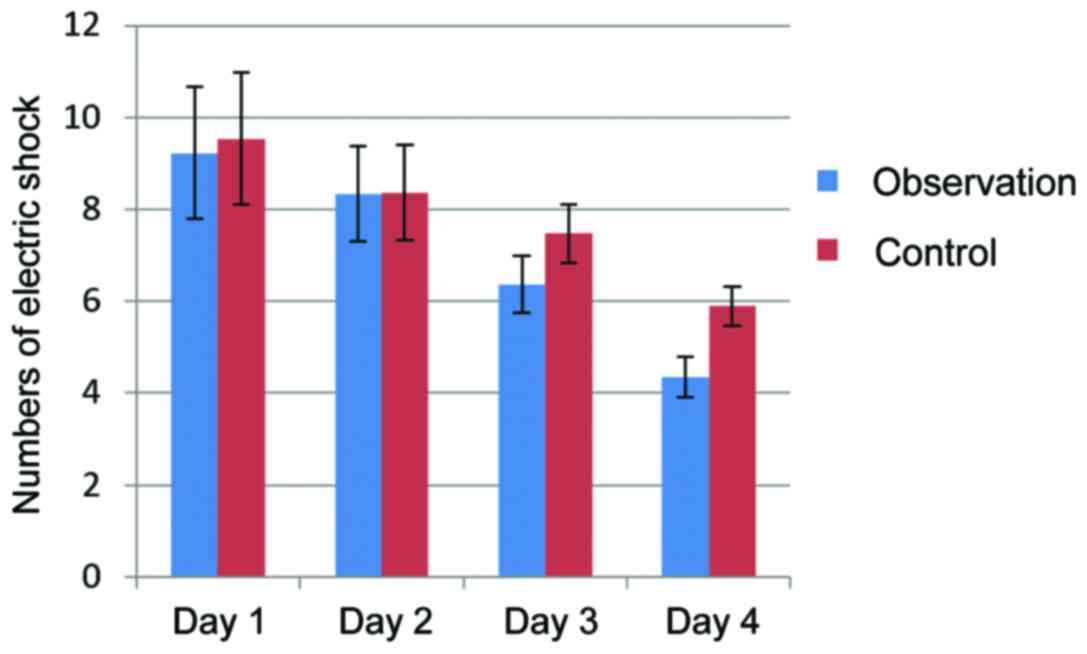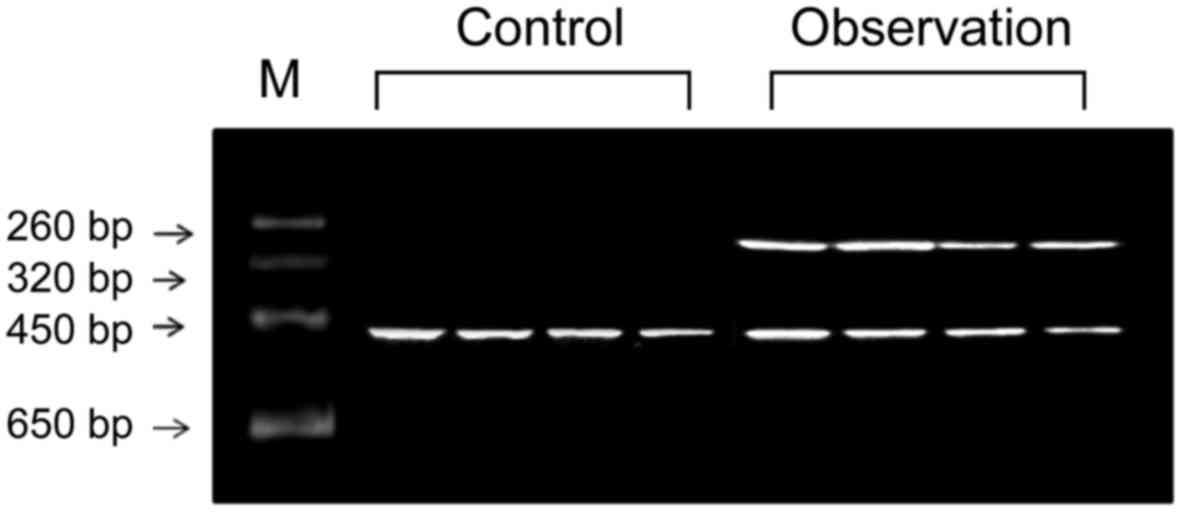|
1
|
Baschat AA: Fetal growth restriction -
from observation to intervention. J Perinat Med. 38:239–246. 2010.
View Article : Google Scholar : PubMed/NCBI
|
|
2
|
Zeitlin J, El AM, Jarreau PH, Draper ES,
Blondel B, Kunzel W, Cuttini M, Kaminski M, Gortner L, van Reempts
P, et al: Impact of fetal growth restriction on mortality and
morbidity in a very preterm birth cohort. J Pediatr. 157:733–739.
2010. View Article : Google Scholar : PubMed/NCBI
|
|
3
|
Brouillet S, Murthi P, Hoffmann P, Salomon
A, Sergent F, De Mazancourt P, Dakouane-Giudicelli M, Dieudonné MN,
Rozenberg P, Vaiman D, et al: EG-VEGF controls placental growth and
survival in normal and pathological pregnancies: Case of fetal
growth restriction (FGR). Cell Mol Life Sci. 70:511–525. 2013.
View Article : Google Scholar : PubMed/NCBI
|
|
4
|
Baschat AA: Neurodevelopment after fetal
growth restriction. Fetal Diagn Ther. 36:136–142. 2014. View Article : Google Scholar : PubMed/NCBI
|
|
5
|
Eichenbaum H: Time cells in the
hippocampus: A new dimension for mapping memories. Nat Rev
Neurosci. 15:732–744. 2014. View
Article : Google Scholar : PubMed/NCBI
|
|
6
|
Etgen T, Sander D, Bickel H, Sander K and
Förstl H: Vitamin D deficiency, cognitive impairment and dementia:
A systematic review and meta-analysis. Dement Geriatr Cogn Disord.
33:297–305. 2012. View Article : Google Scholar : PubMed/NCBI
|
|
7
|
Stephens AS, Bentley JP, Taylor LK and
Arbuckle SM: Diagnosis of fetal growth restriction in perinatal
deaths using brain to liver weight ratios. Pathology. 47:51–57.
2015. View Article : Google Scholar : PubMed/NCBI
|
|
8
|
de Jager CA, Oulhaj A, Jacoby R, Refsum H
and Smith AD: Cognitive and clinical outcomes of
homocysteine-lowering B-vitamin treatment in mild cognitive
impairment: A randomized controlled trial. Int J Geriatr
Psychiatry. 27:592–600. 2012. View
Article : Google Scholar : PubMed/NCBI
|
|
9
|
Kurjak A, Talic A, Honemeyer U, Stanojevic
M and Zalud I: Comparison between antenatal neurodevelopmental test
and fetal Doppler in the assessment of fetal well being. J Perinat
Med. 41:107–114. 2012.
|
|
10
|
Crispi F, Bijnens B, Figueras F, Bartrons
J, Eixarch E, Le Noble F, Ahmed A and Gratacós E: Fetal growth
restriction results in remodeled and less efficient hearts in
children. Circulation. 121:2427–2436. 2010. View Article : Google Scholar : PubMed/NCBI
|
|
11
|
Salari M, Janghorbani M, Etemadifar M,
Dehghani A, Razmjoo H and Naderian G: Effects of vitamin D on
retinal nerve fiber layer in vitamin D deficient patients with
optic neuritis: Preliminary findings of a randomized,
placebo-controlled trial. J Res Med Sci. 20:372–378.
2015.PubMed/NCBI
|
|
12
|
Mangge H, Zelzer S, Meinitzer A, Stelzer
I, Schnedl WJ, Weghuber D, Fuchs D, Postolache TT, Aigner E, Datz
C, et al: 25OH-Vitamin D3 levels in obesity and metabolic syndrome
- Unaltered in young and not correlated to carotid IMT in all ages.
Curr Pharm Des. 21:2243–2249. 2015. View Article : Google Scholar : PubMed/NCBI
|
|
13
|
Speeckaert MM, Speeckaert R, van Geel N
and Delanghe JR: Vitamin D binding protein: A multifunctional
protein of clinical importance. Adv Clin Chem. 63:1–57. 2014.
View Article : Google Scholar : PubMed/NCBI
|
|
14
|
Harms LR, Cowin G, Eyles DW, Kurniawan ND,
McGrath JJ and Burne TH: Neuroanatomy and psychomimetic-induced
locomotion in C57BL/6J and 129/X1SvJ mice exposed to developmental
vitamin D deficiency. Behav Brain Res. 230:125–131. 2012.
View Article : Google Scholar : PubMed/NCBI
|
|
15
|
Nassar MF, Amin DA, Hamed AI, Nassar JF,
Abou-Zeid AE and Attaby MA: Vitamin D status and scholastic
achievement in middle age childhood. J Egypt Soc Parasitol.
42:349–358. 2012. View
Article : Google Scholar : PubMed/NCBI
|
|
16
|
Llewellyn DJ, Lang IA, Langa KM and Melzer
D: Vitamin D and cognitive impairment in the elderly U.S.
population. J Gerontol Bio Sci Med Sci. 66:59–65. 2011. View Article : Google Scholar
|
|
17
|
Brondum-Jacobsen P, Nordestgaard BG,
Schnohr P and Benn M: 25-Hydroxyvitamin D and symptomatic ischemic
stroke: An original study and meta-analysis. Ann Neurol. 73:38–47.
2013. View Article : Google Scholar : PubMed/NCBI
|
|
18
|
Lee B, Sur BJ, Han JJ, Shim I, Her S, Lee
HJ and Hahm DH: Krill phosphatidylserine improves learning and
memory in Morris water maze in aged rats. Prog Neuropsychopharmacol
Biol Psychiatry. 34:1085–1093. 2010. View Article : Google Scholar : PubMed/NCBI
|
|
19
|
Khan SA, Keaser ML, Meiller TF and
Seminowicz DA: Altered structure and function in the hippocampus
and medial prefrontal cortex in patients with burning mouth
syndrome. Pain. 155:1472–1480. 2014. View Article : Google Scholar : PubMed/NCBI
|
|
20
|
Grienberger C, Chen X and Konnerth A: NMDA
Receptor-dependent multidendrite Ca2+ spikes required for
hippocampal burst firing in vivo. Neuron. 81:1274–1281. 2014.
View Article : Google Scholar : PubMed/NCBI
|


















